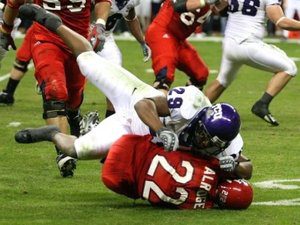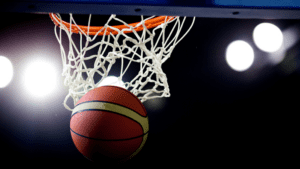Parents, guess what? You must know at this point that you are one of the biggest influencers of your child’s life, especially if your child is under 11-years-old. With this in mind, you have the power to help your athlete think about their athletic experience in a way that will encourage motivation, growth, and development.
Before I get into the tactic of interacting with your child athlete, I will say–it can be very difficult to integrate because it involves you changing the way you talk to your kids about their experiences. This means you might need to change. If you want your child to level up, you will have to level up too.
So what’s this tactic?
In simple terms, we want to start shifting the way you praise your child from praising talent, outcomes (scores, points scored, winning, etc), and accomplishment to praising effort, work, engaging in the process, and failing with effort.
Ok, so you might be thinking something along the lines of, wait…I can’t be proud of my son for his achievements? No, by no means am I saying you can’t do any of those things. I am saying put your focus, attention, and praise on items that they have complete control over rather than things they do not.
You see, when a child is praised for their talent and outcomes, they can slip into what is known as the fixed mindset.
Athletes with a fixed mindset believe that their traits are just givens, and that they have to prove their talent each time they play or compete.
This is what can create undue pressure, anxiety, and a general negative attitude around competition days.
However, when a child is praised for their effort and work, they tend to slip more into the growth mindset.
The growth mindset is associated with having the fundamental belief that their abilities and outcomes are due to hard work (as opposed to mere natural talent).
Think of it as a way of thinking that improves motivation levels, giving the athlete the drive to work towards their goals that you can facilitate.
Parents and coaches often fall into the habit of praising their athletes talent and accomplishments, rather than praising the hard work that the athlete put forth to get there. This is most likely they way you were praised as a child athlete or otherwise in school or the work you have done that you like. Although praise is what many athletes like to hear, “children need honest and constructive feedback that pushes them towards growth as well” (Dweck, 2006).
So, from a mental skills coach who specializes with youth athletes, remember that you the parent have so much influence over your child’s mindset. This not only goes for athletics but can also be applied to school and even relationships with siblings or friends.
Dweck, Carol S. Mindset: The New Psychology of Success. 1st ed. New York: Ballantine Books, 2006. Print.
CoachUp is the safest and easiest way to find a coach for personalized training. With our 100% money-back guarantee and vetted coaches, anyone can achieve their full athletic potential. Find your perfect coach today and become the athlete you want to be!
How useful was this post?
Click on a star to rate it!
Average rating 5 / 5. Vote count: 2
No votes so far! Be the first to rate this post.



